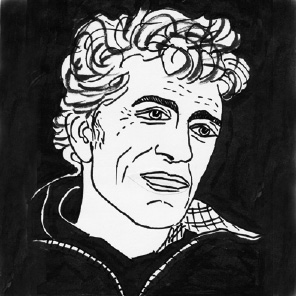I’ve just been watching a TV programme (3 July) about trench photographs in the First World War, taken not by officers but by privates.
It showed the work of a 17-year-old German soldier and a 23-year-old English soldier; both volunteers and both initially thinking war – as Peter Pan said of death – ‘an awfully big adventure’.
The German boy’s early photos are posed poised and romantic – even excited: his comrades draped on their ugly big guns, relaxing with a pre-battle swim in a canal, grouped arm-in-arm and smiling, smoking their pipes and seemingly physically and emotionally unprepared.
The Englishman’s photos are uncannily parallel in subject and composition but less romantically artistic.
Their early photos are innocent of what is to come but as the war grinds inevitably towards the Somme offensive, subject and mood begin to change and both soldiers record the awful incomprehensible madness which the war has triggered.
The mere record of the death and destruction of human life and landscape is inevitably – maybe without intention – a powerful condemnation of war and its deathly folly.
The German boy was killed in the trenches but the English soldier survived to become a grandfather. Private soldiers were forbidden to have cameras in the trenches but the Englishman smuggled his into the war and secretly snapped it. He wrote letters to his sweetheart – she later became his wife – asking her to send him cake. ‘Cake’ was code for film and thus he made his heartbreaking record of unimaginable horrors.
What neither could know was that, 21 years later, the same madness would recommence and culminate in the dropping of two atomic bombs on Japan.
Then followed nuclear decades of Mutually Assured Destruction – MAD indeed – paralleled by the founding of the NATO military alliance, the European Common Market and the eventual establishment of the European Union. Both NATO and the EU have argued that their very existence has maintained post-Second World War peace in Europe which brings me neatly to my column in the June-July issue of PN.
Red-faced rage
That column was actually written a month before the referendum on to leave or not to leave the EU. In it I argued that the EU has had nothing to do with maintaining peace in Europe (Western Europe that is) and that after two world wars there was no way Europe would ever go to war with itself again. When the result was announced, I was astonished by the despair and shock which seems to have afflicted the liberal green left of the UK. On the morning after I was confronted by a red-faced raging lefty and a white-faced near-hysterical Green who – knowing I don’t vote and sensing my lack of enthusiasm for the EU – accused me of ‘opening the gates to fascism’.
Actually none of my considerable political reservations about the UK’s continuing membership of the EU were even raised in the abysmal level of debate preceding the referendum and so – as I wrote then – we were offered a choice of fear or dread.
Since the result was declared I’ve felt a surprising sense of liberation. The irrelevance of our political establishment has been exposed once again and an unholy alliance of chancers and shysters have been stabbing each other in the back in a comic re-run of Hamlet.
Meantime, I do not believe there are 17m fascists in the country and the patronising uncomprehending scorn heaped upon the Leavers by politicos of left, right and centre has been a deeply unpleasant spectacle.
Personally I revel in the discomfort of the political class and see its present disarray as presenting a great opportunity for us to re-invent a cleaner fairer England.
I recommend reading William Morris’s News from Nowhere for inspiration as well as taking to heart Walt Whitman’s admonition to ‘resist much, obey little’.


